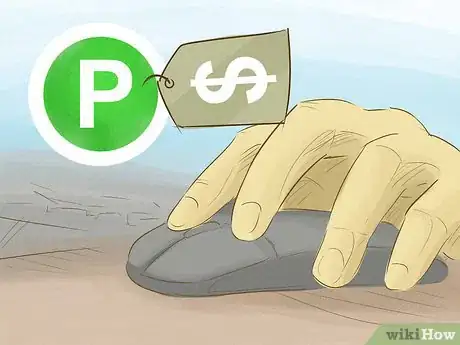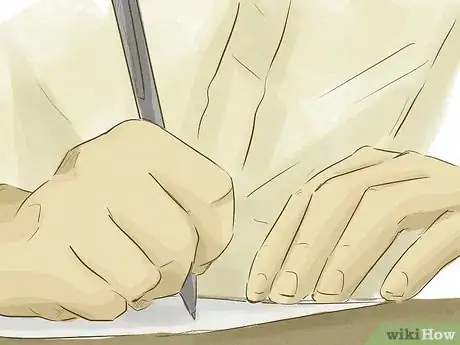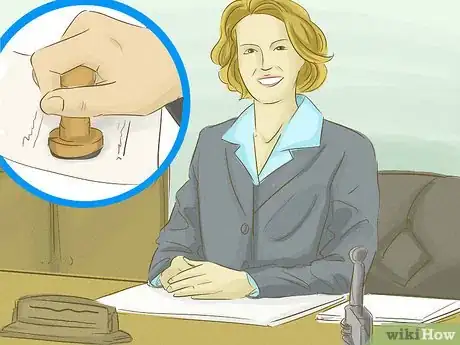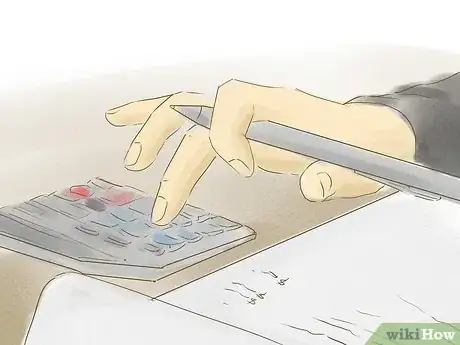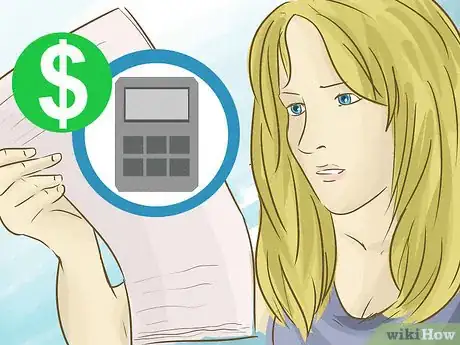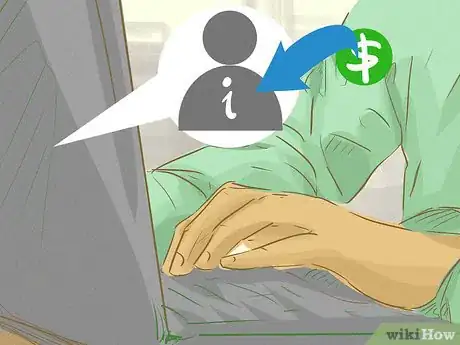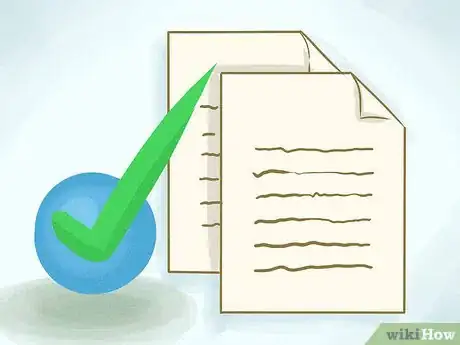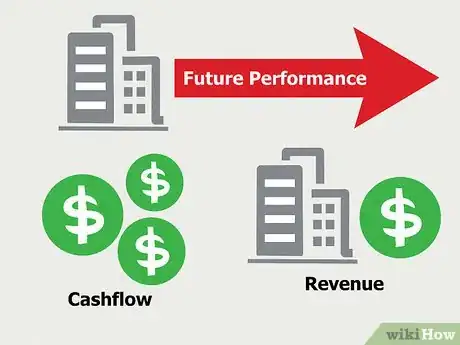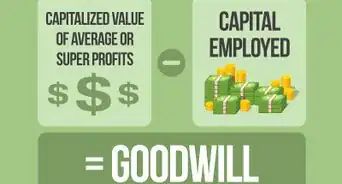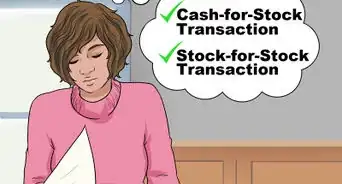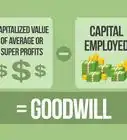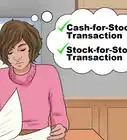This article was co-authored by wikiHow Staff. Our trained team of editors and researchers validate articles for accuracy and comprehensiveness. wikiHow's Content Management Team carefully monitors the work from our editorial staff to ensure that each article is backed by trusted research and meets our high quality standards.
There are 9 references cited in this article, which can be found at the bottom of the page.
This article has been viewed 47,918 times.
Learn more...
Vending machines average over 7 billion in annual sales in the U.S. alone, and you can get a piece of the pie by starting your own vending business. You could buy your own machines and source locations. However, an easier option is to buy someone else’s route, which will allow you to grow quickly. Thoroughly research the vending machines and the seller’s financial records before submitting your bid.
Steps
Researching Vending Routes
-
1Find vending routes for sale. Look online. Websites such as DealStream.com and BizBuySell.com list vending businesses and routes for sale. On BizBuySell, you can conveniently review the company’s gross revenue, inventory, and cash flow.
- Also contact local business brokers and ask if they know of any vending routes for sale.
-
2Ask why the owner is selling the route. You can learn a lot about the health of the business based on the seller’s response. For example, if the seller is retiring, then there’s no reason to be suspicious. However, if the seller doesn’t have a good reason for selling, then the route might be losing money.[1]Advertisement
-
3Inspect all vending machines on the route. Ask the seller to ride along on their route so that you can inspect the machines. Another option is to ask the seller for a location list. You can then visit on your own time and inspect the vending machines without the seller present.[2] Look for the following:
- Are the machines in overall good condition? Is glass broken or do buttons not work? You’ll have to pay to repair these machines.
- Does the machine look like it has hardly been used at all? If not, then the location might not get much traffic.
-
4Talk with the location owner or site manager. These people signed the contract with the vendor. They have valuable information, so speak to them on your own when the seller isn’t present. Ask about the following:[3]
- Do they think the vending machine is getting a lot of business? This is subjective, but the site manager should have a general sense of foot traffic. You don’t want vending machines in remote locations.
- What is the location owner’s relationship like with the current vending route owner? If the relationship is strained, it might be hard to come in as a new owner.
-
5Search for complaints against the vendor. Visit the Better Business Bureau and perform a general Internet search. If the company has a poor reputation, you might want to look at buying a different route.
-
6Place a good faith deposit in escrow. You deposit this money to show that you are a serious buyer. If you don’t go ahead with the purchase, you forfeit the deposit. For a medium-sized business, you typically put $5,000 to $10,000 as a deposit.[4]
Analyzing Financial Information
-
1Sign a confidentiality agreement. The seller is turning over sensitive financial information for your inspection. Before doing so, they will ask you to sign a confidentiality agreement in which you agree not to discuss the potential business sale. Review the confidentiality agreement with an attorney to make sure that it is fair.
- A fair confidentiality agreement shouldn’t last too long. Two years is about right.[5]
-
2Examine five years of financial statements with an accountant. Get tax statements and profit and loss statements. Five years’ worth is ideal, but three years is okay, too. Go over the statements to see how profitable the vending route is.[6]
- If you don’t have an accountant, you can find one by looking online or in the phone book, or by contacting your jurisdiction’s accounting society.
-
3Check whether current contracts are advantageous. When you buy a vending route, you generally buy the vendor’s contracts with location owners. Analyze when the contracts are about the expire. You’ll need to renegotiate any that expire soon, and you might not get as good of a deal.
- Also check whether the contract has a “change in control” clause. The clauses give location owners the option to cancel a contract if the vending route changes hands.[7] Proceed cautiously if you do see this clause, because you might lose the contract if you buy the route.
-
4Search for lawsuits against the company. When you buy a company, you buy their legal obligations, including any court judgments. Search court records to see if the company has been sued in the past, or if there are ongoing lawsuits.[8]
- This can be a tedious process. Some states have online databases that contain information about all lawsuits in the state. However, in other states, you need to go county by county and visit each county’s courthouse.
- If you hire a lawyer, they can search for lawsuits.
-
5Ask for a clearance letter. You’ll also be responsible for any unpaid taxes. In many jurisdictions, a business owner can get a clearance letter that identifies any unpaid taxes and the amount.[9]
- A clearance letter is also great because it will show you how much the company pays in taxes each year.
-
6Estimate the route’s value. You don’t want to pay too much for the route. Valuation is always tricky, but you can lean on your lawyer and accountant to help you come up with a realistic valuation.[10]
- If you don’t want to hire anyone, then use business software, such as BizEquity.
Closing the Deal
-
1Visit banks to discuss possible financing. Can you pay for the vending route in cash? If not, you’ll need a loan or other financing. Stop into banks to ask about a business loan. Banks look closely at your personal credit when deciding whether to make a loan, especially if you haven’t been in business for a while.
- Seller financing might also be an option. Generally, sellers agree to lend 30-60% the purchase price. You cover the rest with cash or another loan.[11]
-
2Identify how much you can spend. Look at your own finances and decide what is the most you can afford to pay for a vending route. Look closely at the route’s cash flow, which is the money you will use to pay back any business loans and also live off (if you have no other source of income).
-
3Make an initial bid 10-15% under your budget. This will give you room to negotiate up, since you can expect the current route owner to make a counteroffer. Remember to walk away if necessary. Don’t get caught up in the excitement of buying a vending route and spend more than your budget allows.
- Always treat the seller with the highest respect. You need them to agree to sell the business.[12] To that end, be prepared to back up your bid and explain why you aren’t offering the seller’s requested price.
-
4Execute a purchase agreement. Your lawyer can draft the purchase agreement, which will contain important information, such as the purchase price and a list of inventory included in the sale. A properly drafted purchase agreement should also include seller representations and warranties that protect you.[13]
- For example, a seller should warrant that the financial records they showed you accurately reflect the business and that the seller has clear title to the assets they are selling. If these facts turn out not to be true, you can sue for compensation.
-
5Negotiate for the owner to stay as a short-term consultant. The current owner has a lot of business knowledge that might be useful. Try to get them to stick around for 60-90 days as an advisor. You will need to pay them, but the value they add can be priceless.[14]
- Have your lawyer draft a consulting contract so that the arrangement is official.
-
6Attend your closing. Review all documents, such as the closing statements, bill of sale, and (if you are borrowing money) promissory note. Your lawyer should attend to make sure everything is in order. Also have a cashier’s check for the amount due ready to hand over to the seller.[15]
References
- ↑ https://www.vendsoft.com/buy-vending-machine-route
- ↑ https://www.vendsoft.com/buy-vending-machine-route
- ↑ https://www.vendsoft.com/buy-vending-machine-route
- ↑ http://smallbusiness.findlaw.com/starting-a-business/what-to-expect-a-chronology-for-buying-a-business.html
- ↑ https://www.inc.com/mike-handelsman/selling-your-business-protect-your-confidentiality.html
- ↑ https://www.vendsoft.com/buy-vending-machine-route
- ↑ https://www.vendsoft.com/buy-vending-machine-route
- ↑ https://www.vendsoft.com/buy-vending-machine-route
- ↑ https://www.vendsoft.com/buy-vending-machine-route
- ↑ https://www.vendsoft.com/buy-vending-machine-route
- ↑ http://fitsmallbusiness.com/seller-financing/
- ↑ https://www.forbes.com/sites/richardparker/2017/02/22/when-negotiating-to-buy-a-business-attitude-outweighs-aptitude/#6f6467081775
- ↑ https://www.inc.com/mike-handelsman/selling-your-business-understanding-the-purchase-and-sale-agreement.html
- ↑ https://www.inc.com/guides/201101/how-to-negotiate-when-buying-a-business.html
- ↑ http://smallbusiness.findlaw.com/starting-a-business/what-to-expect-a-chronology-for-buying-a-business.html





